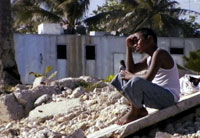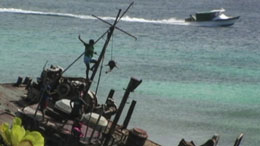

 |

|
  Debating Policy to Improve Population Health This lesson plan uses the health crisis in the Marshall Islands to teach students about the creation of health promotion policy. ARTICLES  Now another migration has begun. Unable to live off the land or find employment in their own nation, many Marshallese have relocated to the unlikely destination of Springdale, Arkansas, where up to 10,000 now live (the exact count is unknown). Many work low-wage jobs at Tyson Foods and other food processing plants in the area. Most are happy to escape the poverty of home, but the adjustment hasn’t been easy. Marshallese living in the U.S. have lower rates of tuberculosis than those at home, but their bodies can’t escape the toll a lifetime of poverty has take on their immune systems. Add to this history the new stressors of an unfamiliar environment and long working hours, and the rates of tuberculosis among Marshallese in Arkansas are still more than 10 times the U.S. average.  Now these annual payments are dropping, and will end entirely when the Compact of Free Association expires in 2018. The daunting challenge facing the Marshallese is how to manage their relationship with the U.S. to regain control over their destiny and develop their economy and social structures in a sustainable fashion to provide the resources needed for health to all. The Marshallese were once known as the “Navigators of the Pacific.” But there are no charts that guide the way to their future. |
|
|||
|